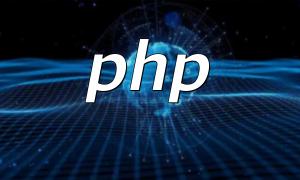In modern web development, the performance of a PHP framework directly affects website loading speed and user experience. Through proper code optimization and resource management, system efficiency can be significantly improved. This article covers practical PHP performance optimization methods including code structure, caching mechanisms, and database optimization.
Loops are often performance bottlenecks, especially when handling large datasets. Avoid redundant loops and use more efficient alternatives like foreach or array_map().
Example:
// Unnecessary loop
for ($i = 0; $i < count($array); $i++) {
$result[] = $array[$i] * 2;
}
// Better approach
$result = array_map(function ($value) {
return $value * 2;
}, $array);
Using array_map makes the code cleaner and can improve performance.
Caching is one of the most effective methods to optimize PHP performance. It stores frequently used data to avoid repeated database queries or heavy computations.
Example:
// Cache query result
$cache = new Cache();
$result = $cache->get('query_result');
if (!$result) {
$result = $db->query('SELECT * FROM table');
$cache->set('query_result', $result);
}
Implementing caching effectively reduces database load and speeds up page responses.
Database queries are often the main performance bottleneck in PHP frameworks. Optimizing query statements and structures can significantly improve efficiency. Ensure tables have proper indexes and minimize unnecessary joins and data retrieval.
Example:
// Use index to speed up query
$result = $db->query('SELECT * FROM table WHERE id > 100 INDEX(id)');
A well-planned index strategy can greatly accelerate query performance.
For an e-commerce website's product list page, the original code fetches data from the database every time the page loads, reducing performance.
Before Optimization:
// Fetch all products
$products = $db->query('SELECT * FROM products');
// Display product information
foreach ($products as $product) {
echo $product['name'] . ' - ' . $product['price'] . '<br>';
}
After Optimization:
// Use cache to store query result
$cache = new Cache();
$products = $cache->get('product_list');
if (!$products) {
$products = $db->query('SELECT * FROM products');
$cache->set('product_list', $products);
}
// Iterate over cached product list
foreach ($products as $product) {
echo $product['name'] . ' - ' . $product['price'] . '<br>';
}
By caching query results, the page avoids repeatedly querying the database, greatly improving load times and system stability.
The core of PHP framework performance optimization lies in efficient code structures, proper caching mechanisms, and precise database queries. Developers should focus on optimization details, continuously test and adjust, to achieve the best balance between performance and stability.









